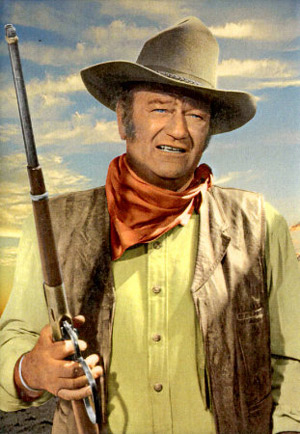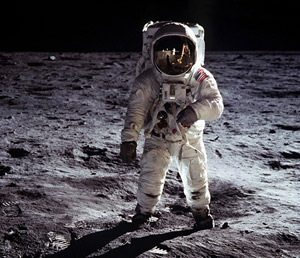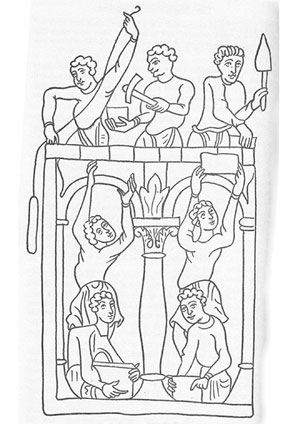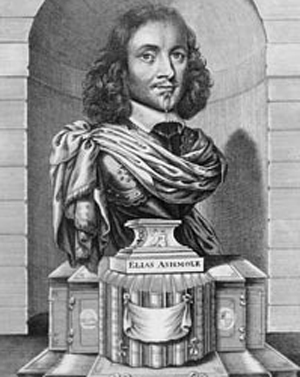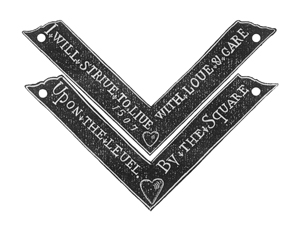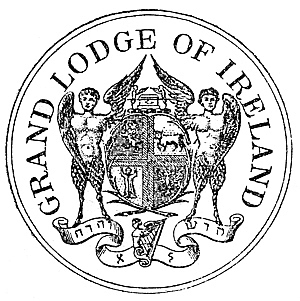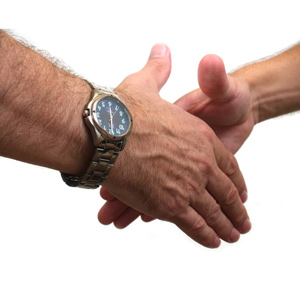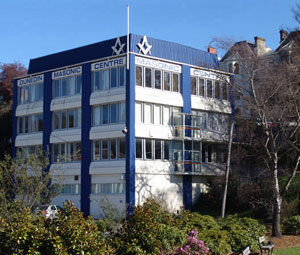| How do I find a lodge near me? | |||
| Contact Information |
Are you thinking of becoming a Freemason?
Although it has a membership in excess of 5.5 million worldwide, Freemasonry is still held to be something of an ‘elite’ Order. In reality, however, men from all walks of life, from the lowliest to the highest, and from any religious background can, and do, become Freemasons. To join, all you have to do is ask. To help to guide you to the correct decision, Lodge St. Patrick has compiled a few commonly asked questions with what we hope are plain straightforward answers.
What is a Freemasons’ ‘Lodge’?
Common in many towns and villages around the world, a Freemasons Lodge consists of a body of men drawn together for the sake of mutual intellectual, social and moral improvement.
I am a Catholic. Can I become a Freemason?
Yes. No distinction of religion (or politics) bars a man from joining any Masonic Lodge. Freemasonry emphasises the duties of citizenship and, furthermore, no religious or political discussion is permitted in Lodge meetings.
Does being a Freemason offer any monetary advantages?
No, and promotion of one’s own, or another’s, business for fiscal gain within a Lodge is not permitted.
Why become a Freemason?
Every man has his own reasons as to why they enjoy Freemasonry, some of these are:
Brotherhood - the act of making a new calibre of new friends, some of whom are like-minded and yet are a fraternity albeit from disparate backgrounds, religious and political persuasions, and age groups.
Achievement - gained from successfully progressing through the various offices within Freemasonry to ultimately becoming Master of a Freemason’s Lodge.
Charity – being able to assist those less fortunate than oneself, and contributing some of one’s time to deserving causes. (NOTE: It is generally understood that many members may not be able to directly contribute monetarily, and this is not expected of any Freemason.)
Education and self-improvement - learning from peers and working with others in the fraternity, practicing the ancient ritual of Freemasonry and occasionally making short speeches.
Further knowledge – discovering the history behind, and the hidden mysteries of, Freemasonry.
Have there been any well known people who have been Freemasons?
It is one of the beauties of Freemasonry that the fraternity tends to attract individuals of quality into its ranks and that through the ages many of these men, who have progressed to distinguish themselves, have also recognised the value of the Order. Name a category from carpenters to Kings, Presidents and Prime Ministers, writers, actors, musicians, businessmen, explorers, sportsmen and scientists, and you will find many who have been Freemasons.
(For a brief list of men who have been Freemasons, together with their abridged biographies, see ‘Famous Freemasons’ elsewhere on this web site.)
How and when did Freemasonry begin?
There is general agreement that, either directly or indirectly, Freemasonry developed from the travelling medieval stonemasons. These were itinerant groups of highly skilled master masons who, on a building site (such as an important civic building, castle or cathedral), erected lean-to huts or ‘lodges’ in which to shelter for warmth, to eat and rest. These lodges ultimately turned into meeting places for the planning of the day’s work, the instruction of apprentices, and for the Master Masons to regulate their craft. Eventually, and in keeping with other trades, they developed initiation ceremonies for new apprentices, those incoming and those progressing. (Even today a ‘ceremony of passing’, normally a fun and lively event, is often carried out by master printers on qualifying printing apprentices.)
As stonemasons (and their entourage) were accustomed to working not only all over their own countries but even in medieval times internationally, a system of recognition for an individual’s level of skill had to be adopted. As there were no trade union cards or certificates of qualification in existence, qualified masons naturally began to adopt private words or signs that they could use when arriving at a new site to prove they were suitably skilled in order to validate that they were entitled to their wages. It was, after all, easier to communicate a secret word or sign to establish who you were and the level of your learning, than it was to spend hours carving a block of expensive dressed stone to demonstrate your skills.
As the building of cathedrals and especially castles began to wane, it is known that in the early 1600s the Lodges of operative masons began to admit non-stonemasons. The new members were initiated as ‘accepted’ or ‘gentlemen’ masons.
As the 1600’s drew to a close more men, who were not by trade masons, joined these Lodges, gradually taking them over. Thus the Lodges lost their direct connection with the craft of the stonemason and so a divorce from ‘operative’ masons to ‘free’ and ‘accepted’ masons occurred. This is backed by ample evidence from Scottish ‘operative’ Lodges that were geographically defined units, and with the backing of Statute Law, to control what the Scots termed ‘The Mason Trade’.
Is it true that Freemasons teach new members through story telling?
It is true that members of the fraternity as they progress through the ranks of Freemasonry become skilled at their craft through a system of allegorical learning that is illustrated by symbols. But it would be incorrect to say that a Freemason gains his knowledge by merely listening to stories.
Were Masonic Lodges always organised in large groups?
There is little evidence that the various Lodges that existed in the 16th and 17th centuries were organised as they are today. That is to say, internationally and under the jurisdiction of what are termed ‘Grand Lodges’ or ‘Provincial Grand Lodges’. As singular units however, evidence points to the fact that internally the individual Lodges themselves were definitely organised. Antiquarian Elias Ashmole, the founder of the Ashmolean Museum in Oxford, was initiated into Warrington Lodge, Cheshire, England in 1646 (the earliest paper record of such an initiation in England). Ashmole recorded the event in his journal and noted those who were present at his initiation, which appears to have been conducted with due ceremony. That being the case, as any Masonic initiation is organised, by necessity so must be the internal hierarchy of the Lodge itself.
Interestingly, from research done subsequently, none of the men in attendance was an ‘operative’ stonemason. It might be deduced therefore that even before 1646 the base of Lodge membership was no longer ‘operative’ masons, that is, genuine stonemasons, but rather ‘free’ and ‘accepted’ gentleman masons.
Is Freemasonry an international force?
Only in the sense that it is a force for good: one that actively benefits in some way the necessitous and less fortunate on every continent.
Is there an international body that governs Freemasons worldwide?
There are many Grand Lodges that operate internationally but, although the Grand Lodges are all in communication, there is not one over arching body that encompasses all of the various Masonic Constitutions (see below) directly and worldwide. The first such ‘governing body’ was created near St. Paul’s Churchyard, London on 24 June 1717, where the world’s first Grand Lodge came into being, with Anthony Sayer elected its first Grand Master. Premier Grand Lodge, as it was then known, soon grew from a mere four Lodges to, by 1730, having more than 100 under its jurisdiction, including Lodges in Spain and India.
On the 27 December 1813, it became the United Grand Lodge of England (UGLE), under the Grand Mastership of HRH Prince Augustus Frederick, Duke of Sussex. The word ‘united’ springing from the fact that previously disaffected Masons from a splinter group, had amicably settled their differences and joined their Lodges with Premier Grand Lodge to become therefore ‘united’.
The Grand Lodge of Ireland opened its doors in Dublin on 24 June 1725, with extrovert Richard Parsons, 1st Earl of Rosse (founder of ‘The HellFire Club’), as its Grand Master! The Grand Lodge of Ireland has 13 provinces under its jurisdiction within the island of Ireland, and 12 covering the rest of the world. This includes New Zealand where, in 1842, Ara Lodge No.348, of the Irish Constitution and based in Auckland was the very first Lodge to be founded in this country. It is the Provincial Grand Lodge of Ireland in New Zealand and this Lodge, Lodge St. Patrick No.468 in Dunedin, is a member.
The Irish Constitution Lodges are every bit as active and interesting as the English, New Zealand or Scottish et al, for instance, in the Province of North Munster, Antient Union Lodge No.13, possesses the oldest known Masonic artefact in the world. Discovered in 1830 under the foundations of Baal’s Bridge over the River Shannon in Limerick, and known as ‘Baal’s Bridge Square’, this mason’s brass set square bears the inscription, “I will strive to live with love and care, upon the level and by the square” and its date of creation is thought to be 1507. (See the full story of ‘Baal’s Bridge Square’ elsewhere on this web site.)
A late-comer was The Grand Lodge of Scotland. Though formed in 1736 it does hold some of the earliest written Masonic documents on record, especially the Minute Book of Lodge of Edinburgh No.1 (Mary’s Chapel), dated 1599.
What qualifications do I need to become a Freemason?
Freemasonry is proud of its philosophy and practice of “making good men better.” Only individuals believed to be of good character are favourably considered for membership. Applicants must be 21 years of age or over and respected in his locality.
Do I need to be of Irish or of Irish decent to join an Irish Lodge?
No. Creed, colour or nationality are no barrier to joining ANY regular Lodge of Freemasons anywhere in the world. For instance, Lodge St. Patrick has within its ranks, New Zealanders, Irishmen, Scotsmen and Englishmen. Currently we have a Worshipful Master who is from England, an Acting Past Master who is Scottish, our Immediate Past Master is Irish and our Secretary and Treasurer are both Kiwis!
How do I find a Lodge to join?
There is a popular misconception that to become a Mason one needs to be invited to join, and that there is some ‘cloak and dagger’ operation involved. In fact the reverse is true a long-standing convention within Freemasonry is that it is the potential candidate who really should be doing the asking! If you have a notion that you might like to join and you know a friend or a neighbour who is a Mason, simply ask him. He will be delighted to talk with you as all Masons are proud to be members of their Lodge.
If you feel that there is no one to whom you can turn – then, if you are in the South Island of New Zealand, simply e-mail Lodge St. Patrick No.468 in Dunedin: lodgestpatrick@gmail.com (See also further contact details below.)
Or, if you are in the North Island of New Zealand, email the Secretary of the Provincial Grand Lodge of Ireland in New Zealand: secretary@ara348ic.org.nz
Alternatively, for the rest of the world, email the Grand Lodge of Ireland in Dublin: office@freemason.ie
In all cases, state your name in full, give your full postal address, County/Province/ State and Post Code, together with your land line telephone number and area code.
In due course a member of staff will contact you and, hopefully, will be able to provide you with the name of the Secretary of the Lodge you need to contact in your area. No one will ‘twist your arm’. Your name will be put before that Lodge. A committee (of perhaps two or three) will arrange to talk to you to ascertain that you are a man of good character. The committee will report its recommendation back to the Lodge. A vote will be taken and, if found acceptable, you will be on your way to becoming a fully fledged Freemason and you will have joined the oldest global brotherhood in the world!
If you would like additional or more detailed information, please contact:
Mr M N Darling
The Secretary
Lodge St. Patrick No.468, I.C. Dunedin Masonic Centre
43 Manor Place
Dunedin 9016
South Island
New Zealand
T: +64 (0)3 473 0359
F: +64 (0)3 454 5494
E: lodgestpatrick@gmail.co.nz
Useful Links
Provincial Grand Lodge of Ireland in (Auckland) New Zealand:
www.ara348ic.org.nz
The Grand Lodge of Ireland in Dublin, Eire:
www.irish-freemasons.org


